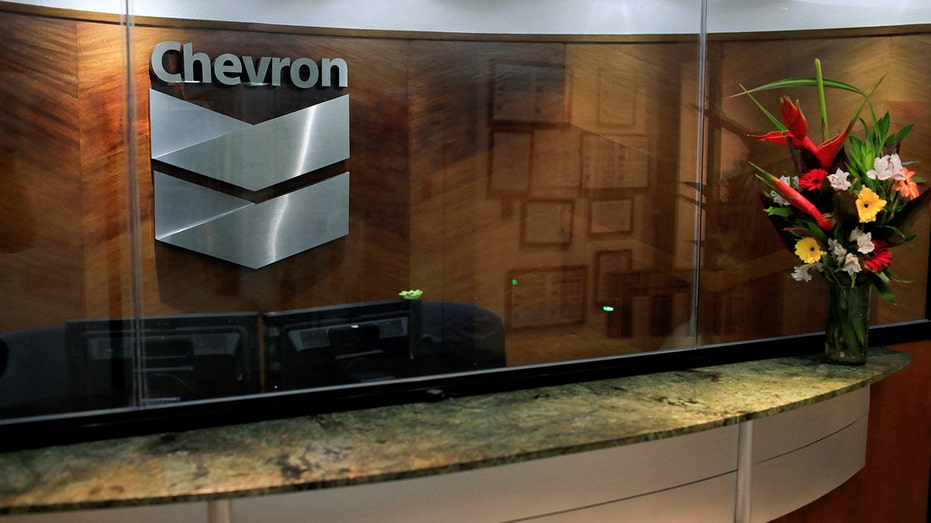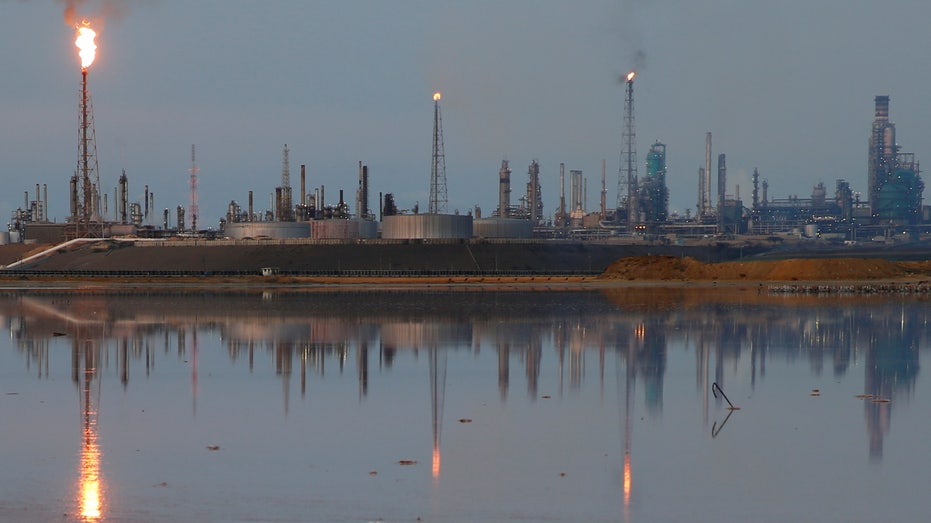US expected to give Chevron approval to expand Venezuela oil operations
President Biden has released more than 200 million barrels from the nation’s emergency oil reserves this year
OPEC decision leaves US 'no good choices' as Biden turns to Venezuela: Vanessa Neumann
Asymmetrica CEO and former Venezuelan Ambassador to the U.K., Vanessa Neumann, reacts to the possibility of the U.S. easing sanctions to allow Chevron to pump oil in Venezuela.
Chevron Corp. may be on the verge of winning U.S. approval to expand its oil operations in Venezuela, possibly as early as this weekend, according to reports.
The approval hinges on whether talks will resume between the Venezuelan government, led by socialist President Nicolás Maduro, and the country’s opposition.

The logo of Chevron is seen at the company's office in Caracas, Venezuela April 25, 2018. (REUTERS/Marco Bello/File Photo / Reuters Photos)
U.S. officials have offered a slight loosening of sanctions and have released some Venezuelan prisoners being held in U.S. jails.
The Biden administration’s overtures to Venezuela come amid slowing production in U.S. shale, as well as Russian oil shrinking under sanctions, and Saudi Arabia signaling OPEC+ production cuts.
THANKSGIVING GAS PRICES HIGHEST RECORDED BUT AMERICANS STILL HITTING THE ROAD
To stave off soaring energy prices this year, President Biden has released more than 200 million barrels from the nation’s emergency oil reserves, though those are due to end soon.
Chevron’s existing license to operate in Venezuela expires on Dec. 1. Should it not gain approval to expand operations before then, the U.S. could renew its existing license, allowing the oil giant to maintain its assets without expanding, sources familiar with the matter told Reuters.

FILE PHOTO: A general view of the Amuay refinery complex which belongs to the Venezuelan state oil company PDVSA in Punto Fijo, Venezuela November 17, 2016. (REUTERS/Carlos Garcia Rawlins/File Photo / Reuters Photos)
Chevron has held a joint venture with PDVSA, the Venezuelan state oil-firm, producing around 200,000 barrels per day before U.S. sanctions and lack of financing scaled back output.
U.S. officials and their Venezuelan counterparts are pushing to hold talks in Mexico City this weekend – the first in more than a year.
Venezuela produces at most 800,000 barrels of oil per day. That figure is up from the average of 525,000 barrels it produced a year ago, but far off its failed target of 1 million a day by the end of 2021 and nowhere near the more than 3 million barrels per day the country was producing in the 1990s.
Venezuela’s oil is also heavier and grimier and is more suited for making asphalt and petrochemicals rather than being used for cars. Extracting gasoline and diesel from Venezuela’s oil would require a complicated refining process.
The country also lacks quality engineers, since many of the ones who ran Venezuela’s industry at its peak were exiled from the country during the Hugo Chavez era, when the socialist dictator nationalized Venezuela's oil industry.
CLICK HERE TO GET THE FOX BUSINESS APP
FOX Business has reached out to Chevron and the U.S. Treasury Department for comment.
A spokesperson for the National Security Council (NSC) told FOX Business the U.S. "believes we must support the people of Venezuela and their democratic aspirations."
Any action will be contingent on if the respective parties return to talks and announce other specific commitments to support the people of Venezuela, the spokesperson said.
"Any announcement or action would not be taken in response to energy prices, as we have said in the past, this is about the regime taking the steps needed to support the restoration of democracy in Venezuela," the spokesperson said.





















